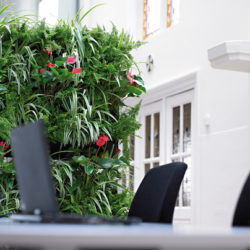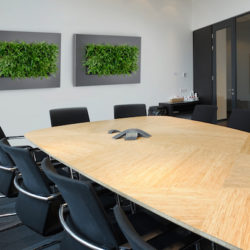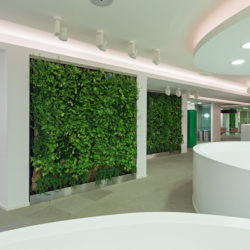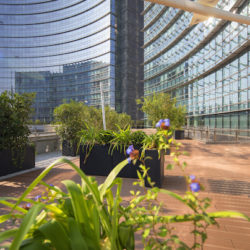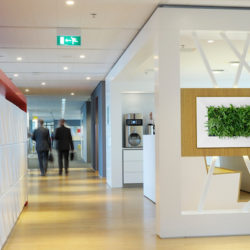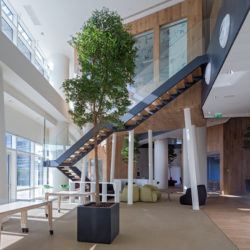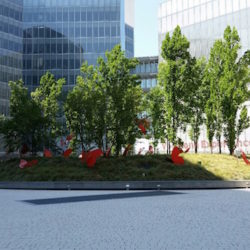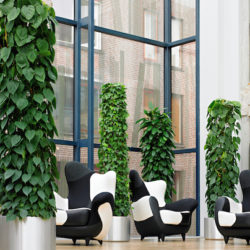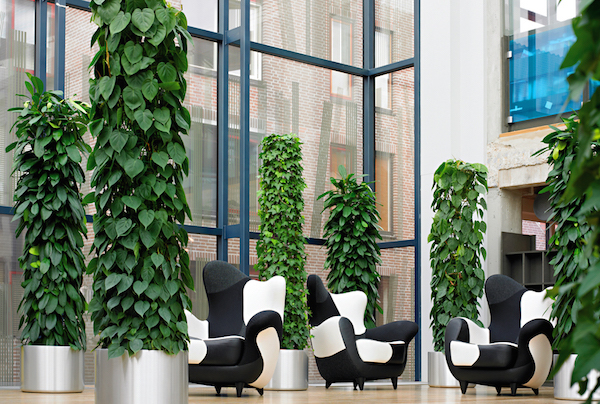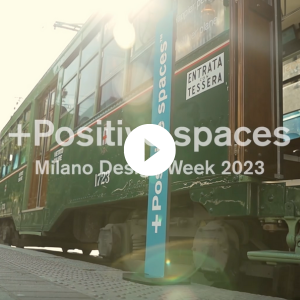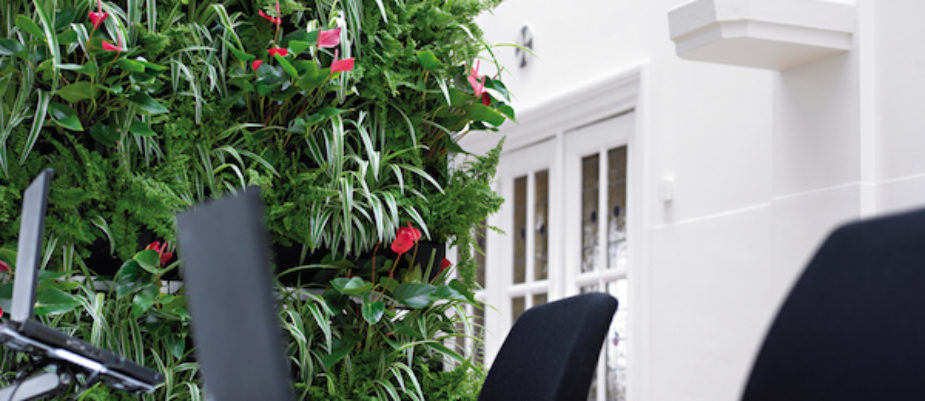
Noise and stress reduction, purification of the environment from noxious molecules, particles or bacteria, increasing of the worker’s capacity of focusing, satisfaction and productivity up to 15%. That is why office plants can make so much difference.
“Simply enriching a previously Spartan space with plants served to increase productivity by 15%. This conclusion is at odds with the present economic and political zeitgeist as well as with modern ‘lean’ management techniques, yet it nevertheless identifies a pathway to a more enjoyable, more comfortable and a more profitable form of office-based working”.
Marlon Nieuwenhuis, from Cardiff University’s School of Psychology, sums up with these words the findings of the last international study regarding the benefits given by the plants in the office, carried out by different Universities worldwide (University of Exeter, University of Groningen, Netherlands, and University of Queensland, Australia).
Kenneth Freeman, Head of Innovation at Ambius, who were involved in the study, said: “We know from previous studies that plants can lower physiological stress, increase attention span and improve well-being. But this is the first long term experiment carried out in a real-life situation. Businesses should rethink their lean processes, not only for the health of the employees, but for the financial health of the organisation.”
The research was carried out in three different Dutch and English offices, examining the impact of lean and “green” offices on subjective perceptions of air quality, concentration, and workplace satisfaction as well as objective measures of productivity. In all 3 experiments enhanced outcomes were observed when offices were enriched by plants.
“Our research suggests that investing in landscaping the office with plants will pay off through an increase in office workers’ quality of life and productivity” Marlon Nieuwenhuis says.
Co-author Craig Knight, of Psychology at the University of Exeter, then concludes: “Psychologically manipulating real workplaces and real jobs adds new depth to our understanding of what is right and what is wrong with existing workspace design and management. We are now developing a template for a genuinely smart office.”
Why do the office plants increase our productivity?
The answer to this question can be given looking at several studies that have been carried out during the years. One of the first was led by the NASA, together with the ALCA (Associated Landscape Contractors of America) in the 80s, showing that houseplants can remove several forms of indoor air pollution, including volatile organic compounds (VOCs).
That helps to reduce “sick building syndrome” cases and, as another research of the Berkeley National Laboratory shows, up to 40% cases of diseases that can be led to a poor air environment.
The same Berkeley’s research has shown that molecules and particles that plants can absorb purifying the air, can detrimentally affect decision-making and concentration.
Plants like Chrisantemum morifolium or Peace Lily, for example, are able to remove from the environment a great part of noxious chemical molecules like Trichloroethylene found in printing inks or paints, Formaldehyde found in paper bags, plywood panelling and synthetic fabrics, Benzene used to make plastics resins or detergents, Xylene found in printings and paint industries and Ammonia found in window cleaners or floor waxes.
Moreover, Washington State University and ALCA’s studies have shown that plant transpiration in an office environment releases moisture, creating a humidity level exactly matching the recommended human comfort range of 30-60%. In addition proper selection and placement of plant materials can lower heating and cooling costs by as much as 20%.
At last, University of Oxford and Surrey’s researches have shown that plants not only can reduce significantly worker’s stress, but also that a small indoor hedge placed around a workspace will reduce noise and office pollution by 5 decibels.
These different outcomes confirm the words of Axel Haslam of the University of Queensland School of Psychology: “The ‘lean’ philosophy has been influential across a wide range of organisational domains. Our research questions this widespread conviction that less is more. Sometimes less is just less“.
Text by Gabriele Masi.
Captions:
Some creations by HW Style, 20-years-experienced company in designing, realising and managing green indoor and outdoor environments for offices, banks, hotels, hospitals, and public spaces. In the pictures some examples of outdoor green spaces, living green walls and live pictures.

